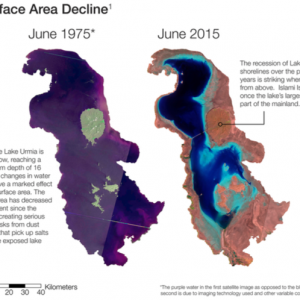The Stream, June 12: Southern Californians are #DroughtShaming Their Neighbors
The Global Rundown |
Mexico‘s only oil and gas company has discovered large hydrocarbon reserves in the Gulf of Mexico. A new study shows that most kids and teens in the United States are dehydrated. The drought in California is ushering in a new form of vigilante justice.
“When you’re trying to do your best personally, and you’re trying to conserve water, it’s very irritating.” – Patricia Perez, resident of Eagle Rock, California, on why she drought-shames. (Los Angeles Daily News)
By The Numbers |
200,000 – Potential barrels of oil per day to be recovered from four newly discovered oil fields in the Gulf of Mexico. Petroleos Mexicanos, or Pemex, discovered the shallow-water fields, which could also produce 170 million cubic feet of gas per day. Bloomberg News
Science, Studies, And Reports |
A study by Harvard University found that most children and teenagers are at least somewhat dehydrated. Over half of several thousand urine samples taken from students aged 6 to 19 between 2009 and 2012 showed some level of dehydration. A quarter of children studied report that they do not drink any water throughout the day. Even mild dehydration can affect mood, fatigue level and learning ability. NPR
On The Radar |
Some residents of Southern California are spending their spare time “drought-shaming” and reporting water wasters in their communities. Activities range from alerting authorities to wasteful practices to posting videos, addresses and names on the internet. One man has even created an app for people to record and report water waste. Los Angeles Daily News
is both a scientist and a journalist, she holds an MS in Environmental Engineering from Michigan Technological University, and she brings proficiency in ESRI’s ArcGIS mapping software.






Check out the jpg file at the link below showing drought, geothermal, and agriculture maps of the United State. The top left map shows where it’s best to harvest geothermal heat as an energy source followed by a current drought map. Notice that the geothermal hot spots are near the same as the drought effected regions in California and Midwest. Now look at the agriculture map below them and the close ups of Nevada and California to the right. Notice that the worst drought effected regions in both states are also the heaviest farmed land, which means they use the most groundwater for crops. The question is does lower groundwater levels caused by agricultural pumping remove the natural cooling systems of geothermal hot spots so more heat escapes the land making it more difficult for rain clouds to form over it ?
https://dl.dropboxusercontent.com/u/47206368/geothermal%20drought%20agiculture%20map.png